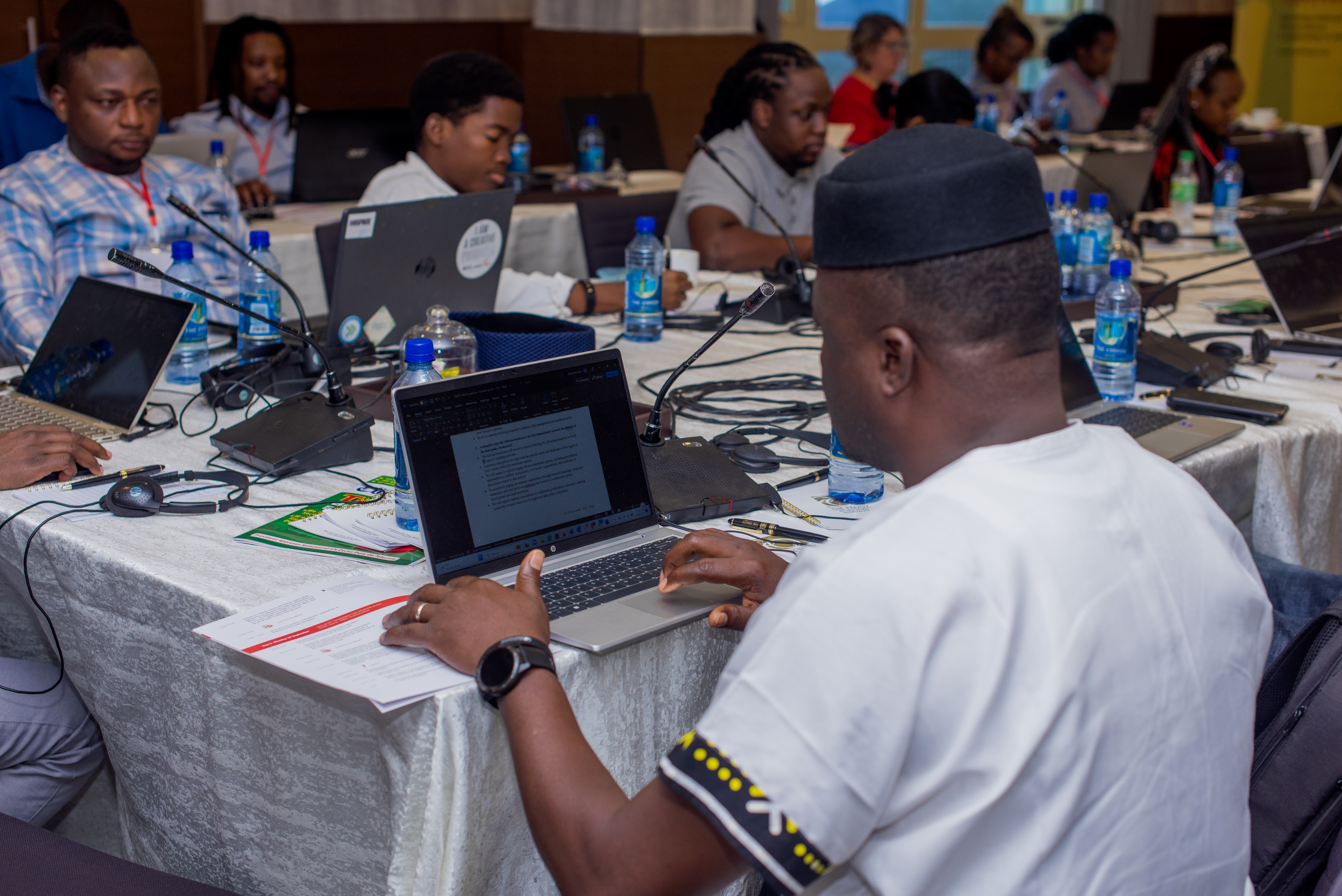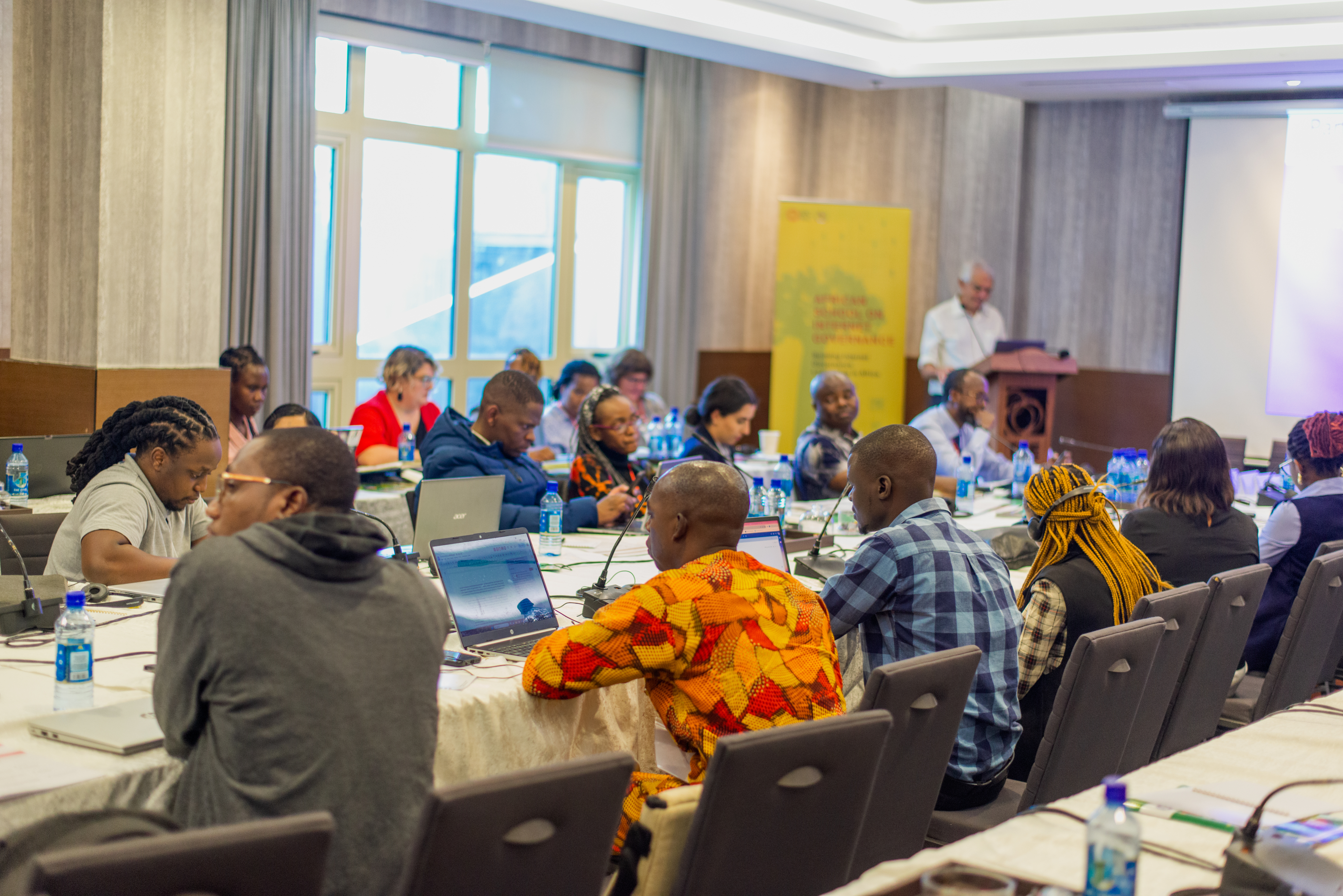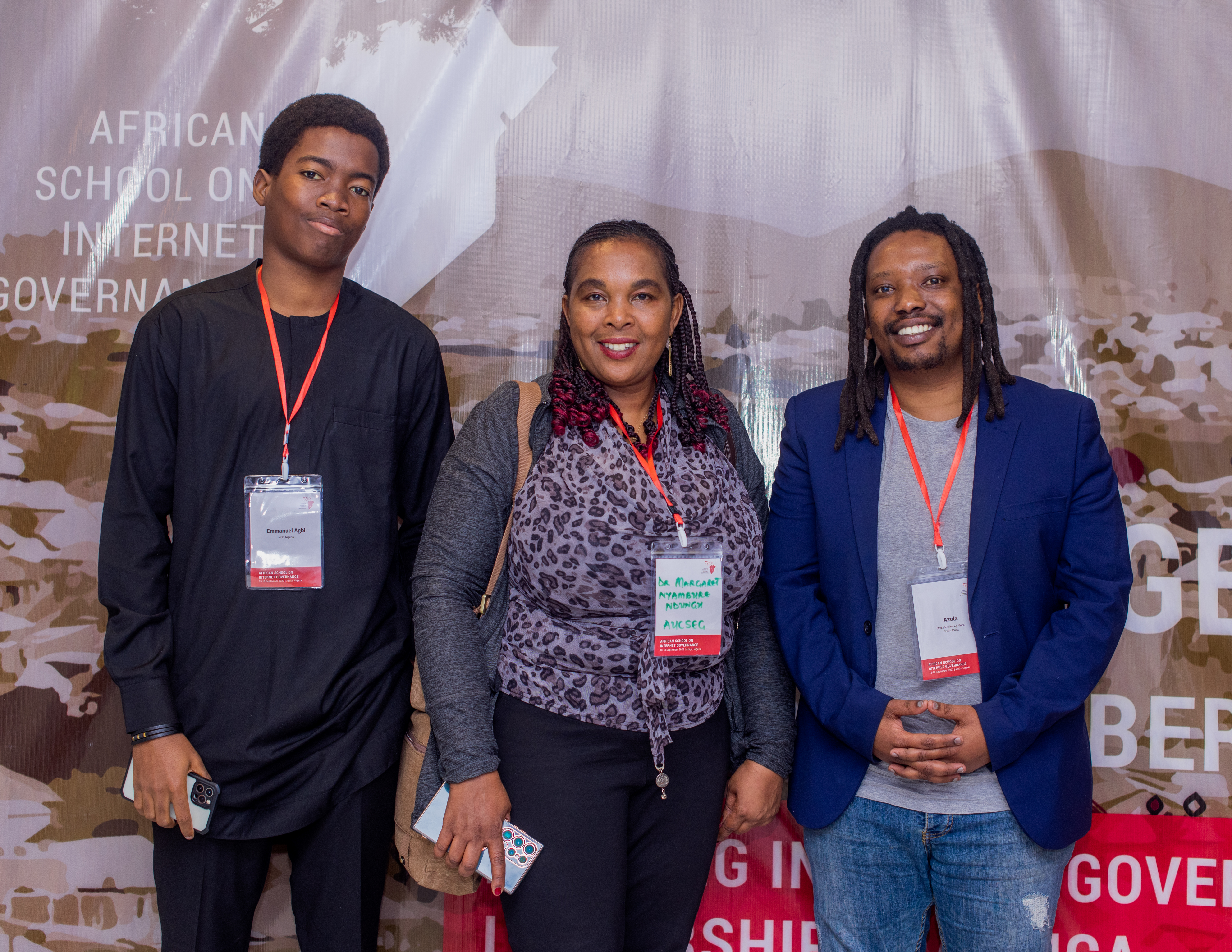
Established with the goal of developing “a pipeline of leading Africans from diverse sectors, backgrounds and ages with the skills to participate in local and international internet governance structures, and shape the future of the internet landscape for Africa's development,” the African School on Internet Governance (AfriSIG) has been bringing together diverse stakeholders from across Africa since 2013.
This year’s AfriSIG took place from 13 to 18 September in Abuja, Nigeria, immediately prior to the African Internet Governance Forum. It was convened by the Association for Progressive Communications (APC) along with the African Union Commission (AUC) and Research ICT Africa, and was organised in collaboration with Paradigm Initiative, the United Nations Internet Governance Forum Parliamentary Track and the hosts and organisers of the 2023 African IGF, the Federal Government of Nigeria and the AfIGF secretariat and Multistakeholder Advisory Group. AfriSIG 2023 benefited from the contributions of an outstanding group of faculty and resource persons.
Over the course of five days, 53 participants, 42 of which were fellows, from 20 countries took part in interactive sessions ranging from the history of internet governance in the African context to the digital economy and cyber resilience, all through a multistakeholder approach. The latter point is one of the most powerful aspects of AfriSIG, as it brings together people from across sectors. These include civil society, business, media, technical community and academic and research institutions. “AfriSIG has a methodology of bringing different stakeholder groups together to perform a common task,” explained Anriette Esterhuysen, APC’s senior advisor on global and regional internet governance. Esterhuysen is also AfriSIG’s longtime organiser, supported this year by Peace Oliver Amuge, APC’s Africa regional strategy lead, Risper Arose from TNET and Uchechukwu Nwodi from Paradigm Initiative.
Along with the various sessions there was a daily “practicum”, an interactive, hands-on component that resulted in the presentation of an output document at the United Nations Internet Governance Forum Parliamentary Track on 18 September.

This year's gathering saw participants with a broad range of skills and experiences from diverse backgrounds, including a “growing digital rights expert interested in seeing a rights-respecting internet”, a “self-proclaimed data journalist” working in Kenya and a Uganda-based programme director who is “deeply committed to enhancing data governance, privacy, and freedom of expression in Africa. "What has prompted me to apply for the African School on Internet Governance is firstly the impact that previous alumni have had on policy recommendations as it relates to internet governance in Africa and just the overall impact of the project,” explained Rosevitha Ndumbu from the Institute of Public Policy Research in Namibia, in a .
Implementing the African Union Data Policy Framework
The theme of this year's AfriSIG was the African Union's Data Policy Framework (AUDPF), which was released on 28 July 2022 with the goal of establishing “a multi-year blueprint for how the AU will accomplish its goals for Africa’s digital economy”. It sets out a vision for Africa’s data ecosystem and offers guidance for member states on navigating governance and regulatory issues in support of a secure and rights-respecting digital economy. “The AUDPF represents a significant milestone in creating a united data environment and harmonised African digital data governance systems,” explained Bridgette Hanani Ndlovu, an AfriSIG fellow from Paradigm Initiative, Zimbabwe, in a blog post. “It is envisaged that these steps will promote the free and secure flow of data across Africa, provide safeguards for human rights and uphold security."
While the creation of the AUDPF is recent, it was established with the intention of providing a long-term and forward-looking roadmap for member states. For this reason, making early-stage recommendations around the framework strengthens its potential as a pan-African, data regulation policy document. “During AfriSIG, participants delved into concrete discussions based on the implementation of a rather new policy framework for the region,” explained Paula Martins, APC’s global policy lead. “They not only learned about it in theory, but really had the opportunity to plan action points and propose recommendations for different stakeholders in relation to data governance and flows within Africa.”

With sessions structured around the opportunities and challenges of the AUDPF, a key outcome to emerge this year was the AfriSIG 2023 Practicum Outcome Document, a draft strategy for the AU to implement the Data Policy Framework, drafted by fellows during the practicum. “This document provides comprehensive guidelines for the inclusive and multistakeholder implementation of the African Union Data Policy Framework,” Risper Arose, a gender and community engagement expert who served as a member of the secretariat for AfriSIG 2023, noted in a blog post. “The AfriSIG fellows looked at the practicality of the framework… and how it can be implemented at the national level, but inclusively, in a way that looks at multistakeholder engagement, gender issues, human rights issues, and the inclusion of the marginalised who don’t have access.”
The outcome document, available in English and French, presents specific recommendations to different stakeholders like academia, business, parliaments, regulators and more, as well as the following general recommendations:
- Assess regional policy gaps for AUDPF implementation: Identify and analyse policy gaps between the AUDPF and existing national and regional regulations and institutional structures, focusing on key regional initiatives like the African Continental Free Trade Agreement (AfCFTA), and the Digital Transformation Strategy for Africa.
- Capacity development: “Data” literacy programmes should be integrated into broader media and digital literacy strategies.
- Monitoring, evaluation and follow-up of implementation of the AUDPF: Track impact and effectiveness of implementation of the AUDPF through periodic reviews, and experience sharing.
- Talent attraction and retention: All stakeholders should engage efforts to attract and keep local data governance talent through attractive remuneration, non-financial incentives and better working conditions in academic and research institutions, the public sector and in civil society and the private sector.
- Transparency and accountability: Civil society and media play a key role in monitoring and reporting on how governments implement data governance policies. Parliament plays an oversight role and can help hold the executive accountable for implementing agreed plans.
Video: AfriSIG 2023 video produced by Paradigm Initiative.
There was a high level of enthusiasm from participants about the potential for the AUDPF to effect meaningful change, and their ability to play a role in awareness raising thanks to their AfriSIG experience. In an evaluation after the event, several fellows expressed a willingness to engage in follow-up activities such as working with local IGF chapters to organise training as well as implementation of the data policy framework. "My call to action is for the different governments to localise this framework and to implement it as per the guideline provided by the African Union,” commented Isaac Amuku of the Women of Uganda Network (WOUGNET) in the event’s participant evaluation report.
Connecting with members of parliament
A notable element of this year’s AfriSIG included the participation of twelve members of parliament from countries like Cameroon, Democratic Republic of Congo, Ghana, Egypt, Djibouti, Malawi and Nigeria. “A particular focus of AfriSIG 2023 is the inclusion of parliamentarians and the significance of them working as equals with civil society, government and others for five days,” said Esterhuysen. Their engagement in the process speaks to the significance of holding a space for multistakeholder dialogue on internet governance across all sectors.
In turn, feedback from the participating parliamentarians has been encouraging and may pave the way for similar bridge-building efforts at future editions of the school. “What makes AfriSIG unique is that it brings all the stakeholders together to talk and negotiate,” stated Dr. Maha Abdel Nasser, a member of parliament in Egypt and ICT specialist. "Most of the countries have the same pains and the same issues. Access to information, for instance, is extremely important. But the most important thing that we need all to understand is to have this data framework coming to light," she stated during her presentation at AfriSIG,
“The engaging nature of participants, the quality of trainers chosen, the emerging and enthusiastic young and qualified youths selected and the strategic topics carefully chosen for the school not leaving out the policymakers made it unique,” reflected Hon Agho, a member of parliament from Cameroon who attended this year’s AfriSIG.
He further expressed support for the theme of the AUDFP, central to this year’s gathering. “I see the total commitment of AfriSIG to the African Union Data Framework Policy as the most critical, urgent and groundbreaking point in the AfriSIG output documents, not only because of the timely nature of the document but also because of the central role data has now in the digital space," Hon Agho stated. "It could be used most effectively in my opinion by strategically and carefully engaging champion Members of Parliament in respective countries to form think-tank groups together with other interested participants who attended or those who have attended in the past to push for the implementation of the AU, data framework policy documents in their respective countries.”
Adding to this, Nasser noted, “The most critical point in my opinion is the idea of having the data flow between African countries, and I think this needs a lot of lobbying to get the governments’ buy-in.”
Applying lessons learned to the African Internet Governance Forum
With the African Internet Governance Forum (AfIGF) following immediately after AfriSIG, many fellows had the opportunity to apply their knowledge and skills on internet-related public policy issues on the ground. It created an excellent example of immediately using lessons learning to make an impact during a significant regional multilateral forum.
The outcome document also served an important role immediately following AfriSIG. “After the five days, one of the key outcomes that was presented at the IGF parliamentarian session was the draft of the AfriSIG 2023 Practicum Outcome Document,” Arose pointed out. The recommendations will undoubtedly continue to be developed, with the AfriSIG outcome document acting as a key resource to guide implementation of the AUDPF thanks to the work of the AfriSIG fellows. As Arose further noted, “the intricacies of the Data Policy Framework were introduced to those unfamiliar with it, and by the end of the programme, they emerged not only as champions of this framework but also as advocates for its effective implementation.”
